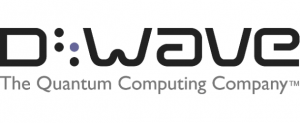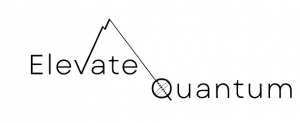Quantum News Briefs July 30: Fast Company’s 2024 “Innovation by Design Awards Program” honors QuSecure’s quantum-safe orchestrated crypto-agility platform QuProtect • D-Wave announces roadmap to extend Leap Quantum Cloud Service for AI/ML • New Mexico Community College designated a lead for training quantum technicians in partnership with Elevate Quantum University of Bath researchers create specialty optical fibers to enhance quantum computing networks •

News Releases:
Fast Company’s 2024 “Innovation by Design Awards Program” honors QuSecure’s quantum-safe orchestrated crypto-agility platform QuProtect
 QuSecure™, Inc., a leader in post-quantum cryptography (PQC), today announced in July 30 news release that its QuProtect Crypto-Agility platform was honored in Fast Company’s Innovation by Design Awards for 2024 program in the User Experience category.
QuSecure™, Inc., a leader in post-quantum cryptography (PQC), today announced in July 30 news release that its QuProtect Crypto-Agility platform was honored in Fast Company’s Innovation by Design Awards for 2024 program in the User Experience category.
The Innovation by Design Awards, which can be found in the Summer issue of Fast Company, honor the designers and businesses solving the most crucial problems of today and anticipating the pressing issues of tomorrow. The competition, now in its 13th year, features a range of blue-chip companies, emerging startups, and promising young talent. It is one of the most sought-after design awards in the industry. Alongside QuSecure, other recognitions in the User Experience category include the Google Pixel Fold, Samsung One UI 6.1, Notion AI, and the Target Shopping Cart.
QuSecure was awarded this recognition for its success in creating an intuitive user experience while bringing a completely new category to market – orchestrated encryption management.
D-Wave announces roadmap to extend Leap Quantum Cloud Service for AI/ML
 D-Wave Quantum Inc. announced July 29 it is strengthening the connection between quantum optimization, artificial intelligence (AI), and machine learning (ML), by extending its product development roadmap with enhancements to the Leap quantum cloud service that will bring new Quantum AI solutions to market.
D-Wave Quantum Inc. announced July 29 it is strengthening the connection between quantum optimization, artificial intelligence (AI), and machine learning (ML), by extending its product development roadmap with enhancements to the Leap quantum cloud service that will bring new Quantum AI solutions to market.
The roadmap is intended to help customers address a variety of AI/ML workloads including pre-training optimization, more accurate and efficient model training, and opening new AI business use cases that require the integration of AI and business optimization, such as quantum supply chain optimization to support AI-predicted product demand requirements.
D-Wave’s Quantum AI development initiative comes at a time when the broader AI industry is confronting a computing crunch. The amount of compute and the associated energy costs needed to satisfy a growing set of use cases is rapidly escalating. D-Wave’s Quantum AI solutions aim to leverage annealing quantum computing’s unique capability in solving optimization problems to help customers discover better, faster and more energy efficient AI and ML workloads.
New Mexico Community College designated a lead for training quantum technicians in partnership with Elevate Quantum

Elevate Quantum, a consortium of organizations based in Colorado, New Mexico and Wyoming, recently announced in a news release that it received a Tech Hub Phase 2 Implementation award from the U.S. Department of Commerce, resulting in $127 million in funding.
As members of Elevate Quantum, Central New Mexico Community College (CNM) and University of Colorado-Boulder are designated as the workforce development leads. CNM Ingenuity, a workforce development arm of CNM, will partner with Sandia National Labs to develop the curriculum for an immersive 10-week (40 hours per week) Quantum Technician Bootcamp that will serve as a rapid workforce training program, and CNM will support other community colleges in the region to reproduce and expand the training. It will be part of CNM Ingenuity’s successful Deep Dive Technology bootcamps.
University of Bath researchers create specialty optical fibers to enhance quantum computing networks
 A new generation of specialty optical fibers has been developed by physicists at the University of Bath to cope with the challenges of data transfer expected to arise in the future age of quantum computing as per an article from the University published in HPCWire July29.
A new generation of specialty optical fibers has been developed by physicists at the University of Bath to cope with the challenges of data transfer expected to arise in the future age of quantum computing as per an article from the University published in HPCWire July29.
The cable networks used today to transmit information across the globe are likely to be sub-optimal for quantum communications, due to the solid cores of their optical fibers.
Unlike regular optical fibers, the speciality fibers fabricated at Bath have a micro-structured core, consisting of a complex pattern of air pockets running along the entire length of the fiber.
“The conventional optical fibers that are the workhorse of our telecommunications networks of today transmit light at wavelengths that are entirely governed by the losses of silica glass. However, these wavelengths are not compatible with the operational wavelengths of the single-photon sources, qubits, and active optical components, that are required for light-based quantum technologies.” said Dr Kristina Rusimova from the Department of Physics at Bath. Rusimova added: “Optical-fiber design and fabrication is at the forefront of the University of Bath Department of Physics research, and the optical fibers we are developing with quantum computers in mind are laying the foundations for the data transmission needs of tomorrow.”




















